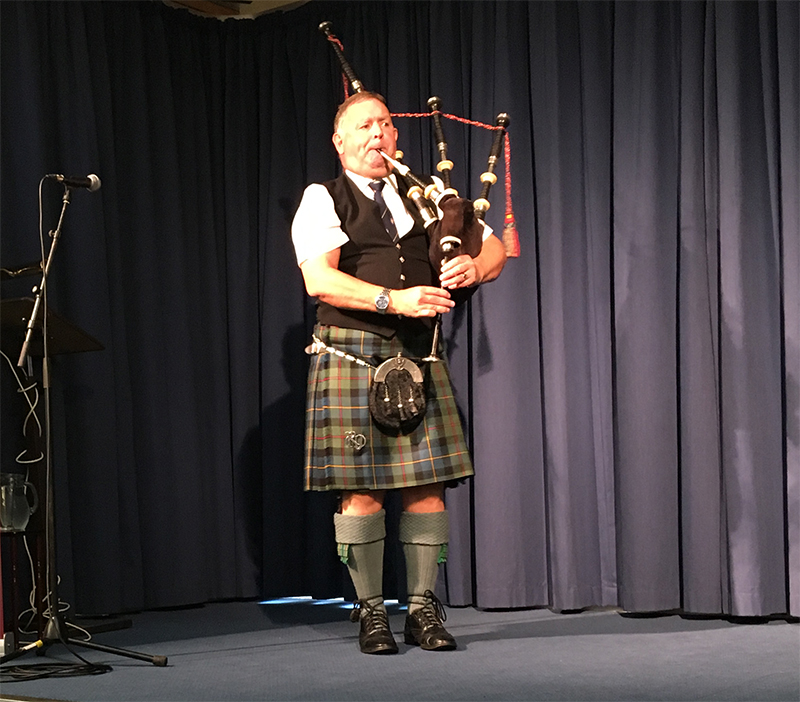A piob a day

The National Piping Centre, Otago Street is hosting “Piobaireachd of the Day” all week, and Tuesday Roddy MacLeod took the stage for an hour to deliver a recital of light music and the piobaireachd “The Lament for the Iolaire.” About 30 people gathered in the hall at the Otago Street site, and the tune selection tied in with the session following, which was a presentation about pipers in World War I. The “Piobaireachd of the Day” is sponsored by the Piobaireachd Society.
“The Lament for the Iolaire” was written by Pipe-Major Donald MacLeod, M.B.E. to honour the memory of more than 200 soldiers who lost their lives in a storm just off Lewis when they were being returned home after the war. Roddy described Donald MacLeod’s connection to the story, and also his own. Roddy’s great uncle was one of the young men drowned that day, and he emphasized that almost every family on Lewis would have lost someone in the tragedy.
MacLeod was in fine form after competing in the Masters event the previous day, and his characteristic great sound and musical delivery was on show as he played a set of 6/8 marches, some small strathspeys and reels—with a “Spirit of Scotland” flavour—and a great MSR to get the pipes set up for the piobaireachd.
Donald MacLeod’s evocative lament was published in his piobaireachd collection in the late 1970s, and has also been covered in his tutorial recordings. Roddy MacLeod’s performance was a tutorial of its own, and it was an entirely satisfying experience for the audience.
Following the piobaireachd, MacLeod talked a little about Donald MacLeod, passing along some stories that he’d gleaned from a recent conversation with Susan MacLeod, the famous pipe-major’s daughter. He told the story of Donald’s first tune being the jig “Rory MacLeod,” composed in school using musical shorthand on his school papers. This habit got Donald the nickname “Dots Doyle” at school, and it was a practice he kept all his life. In later years, Donald used to put his dots on the brown paper on the workbench at Grainger & Campbell, and then tear off the good ones to add to finish at a later date.
Roddy talked a little about his historic R.G. Lawrie bagpipes, which he purchased from the great John D. Burgess. The bagpipe was made in 1907, and was a presentation set to retiring P-M Alexander MacKenzie of the Seaforth Highlanders, son of the well-known P-M Ronald MacKenzie, himself a nephew of John Ban MacKenzie. Roddy took delivery of the pipes in the Perth train station, and has played the same set consistently ever since.
Following the chat, MacLeod finished off the recital with some 4/4 marches, and a slow air/hornpipe/jig set, with his historic bagpipe locked in place for the duration.
This was a highly entertaining hour of music and story, and great to hear Roddy MacLeod playing in the building where he spent so much time learning as a boy.

NO COMMENTS YET